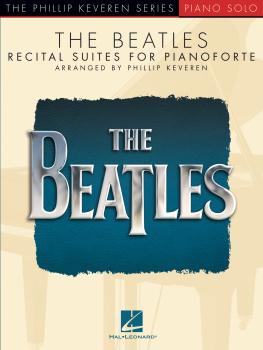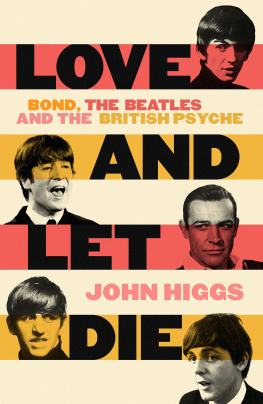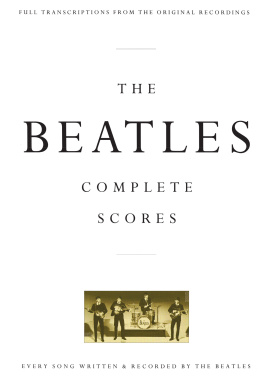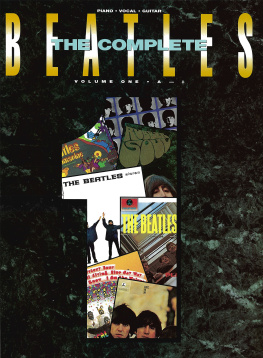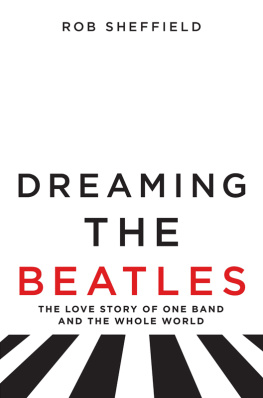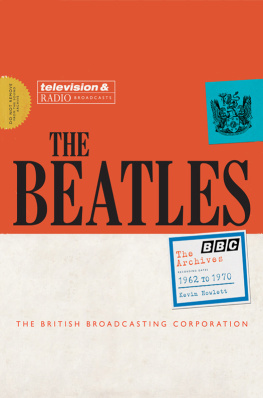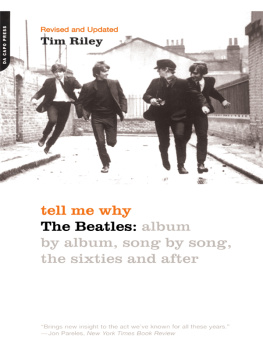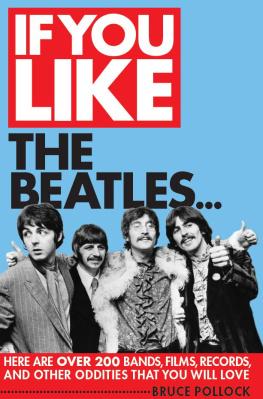Jonathan Gould - Cant Buy Me Love: The Beatles, Britain, and America
Here you can read online Jonathan Gould - Cant Buy Me Love: The Beatles, Britain, and America full text of the book (entire story) in english for free. Download pdf and epub, get meaning, cover and reviews about this ebook. year: 2007, publisher: Crown Publishing Group, genre: Detective and thriller. Description of the work, (preface) as well as reviews are available. Best literature library LitArk.com created for fans of good reading and offers a wide selection of genres:
Romance novel
Science fiction
Adventure
Detective
Science
History
Home and family
Prose
Art
Politics
Computer
Non-fiction
Religion
Business
Children
Humor
Choose a favorite category and find really read worthwhile books. Enjoy immersion in the world of imagination, feel the emotions of the characters or learn something new for yourself, make an fascinating discovery.

- Book:Cant Buy Me Love: The Beatles, Britain, and America
- Author:
- Publisher:Crown Publishing Group
- Genre:
- Year:2007
- Rating:5 / 5
- Favourites:Add to favourites
- Your mark:
- 100
- 1
- 2
- 3
- 4
- 5
Cant Buy Me Love: The Beatles, Britain, and America: summary, description and annotation
We offer to read an annotation, description, summary or preface (depends on what the author of the book "Cant Buy Me Love: The Beatles, Britain, and America" wrote himself). If you haven't found the necessary information about the book — write in the comments, we will try to find it.
Cant Buy Me Love: The Beatles, Britain, and America — read online for free the complete book (whole text) full work
Below is the text of the book, divided by pages. System saving the place of the last page read, allows you to conveniently read the book "Cant Buy Me Love: The Beatles, Britain, and America" online for free, without having to search again every time where you left off. Put a bookmark, and you can go to the page where you finished reading at any time.
Font size:
Interval:
Bookmark:
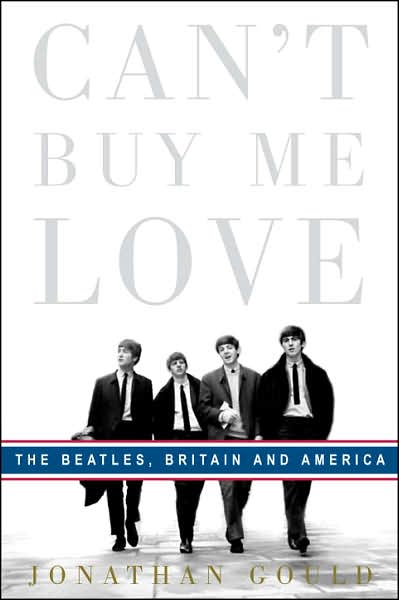
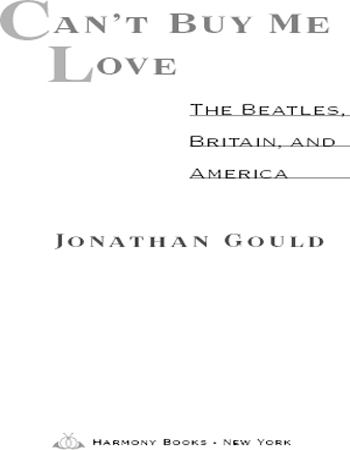
Contents
In loving memory of my parents,
Milton & Eleanor Gould
And loving appreciation of my children,
Ellie & Oliver Gould
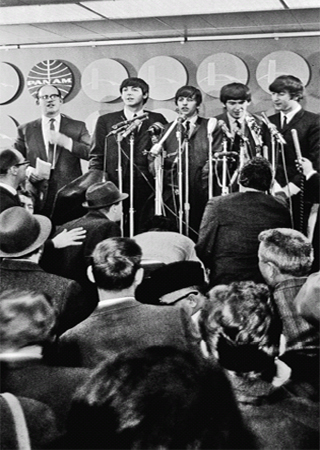
John F. Kennedy Airport, New York, February 1964
PROLOGUE
They went to sea in Sieve, they did, in a Sieve they went to sea:
In spite of all their friends could say, on a winters morn, on a stormy day,
In a Sieve they went to sea!
Edward Lear, The Jumblies
O n a gray, blustery Friday afternoon in February 1964, the four young British musicians collectively known as the Beatles arrived on a gleaming Pan American Airways jetliner at Kennedy Airport in New York, where they were met by a crowd of two hundred jostling reporters and photographers and some four thousand fans, mostly teenaged girls, who lined the rooftop observation deck of the airports International Arrivals Building in a great singing, shrilling mass.
The reporters and photographers were there because, over the preceding three months, news of a phenomenon that had consumed the attention of the British public since the summer before had been drifting across the Atlantic in reports filed by the London bureaus of American newspapers, magazines, and television networks. The British press had coined the term Beatlemania to describe the relentless and seemingly hysterical response of that countrys teenagers to an indeterminate mixture of musical presence, public personality, and social significance that was projected by this pop group from the port city of Liverpool, whose fresh-faced exuberance and insouciant wit had endeared them to a substantial number of adult Britons as well. Beginning with a smattering of articles in the fall of 1963, early coverage of the Beatles by the American press had been playfully condescending. There were repeated references made to the stereotype of English eccentricity and much reliance placed on metaphors of infestation and epidemic: BEATLE BUG BITES BRITAIN read a headline in the show-business weekly Variety. The British had gone mad forof all thingsrock n roll.
Rock-n-roll hysteria was considered old news in America in 1964. Most people thought of it as something that had come and gone in the years since Elvis Presley had burst upon the national consciousness in the spring of 1956. By the early 1960s, the pop-singing teen idol had become a clich epitomized by the character of Conrad Birdie in the 1963 Hollywood musical Bye Bye Birdie: a loutish, leering naf, plucked from obscurity by a cynically manipulative manager and foisted on a needy, worshipful adolescent public. Though nobody had thus far been able to expose the hands that were pulling the strings, the American reporters who were assigned to cover the story took it for granted that Beatlemania was another spectacular example, with an unaccountably British twist, of an established promotional technique by which the hormones of pubescent femininity were milked for money and fame.
Having cleared the formalities of Customs and Immigration, the Beatles and their small entourage were escorted into the terminals press room and grouped around a podium for an impromptu news conference. Uninitiated as to which of these slim, dark-suited figures was which, reporters directed their questions at the group, whose members seemed to vie with one another to come up with the most flippant or outrageous answer. They began by affirming their professionalism with a bluntness that was startling by the prevailing standards of show-business cant. Wont you please sing something? asked a woman reporter. No! said one. Sorry! said another. We need money first! said a third. And away it went from there: Are you for real? they were asked. Come and have a feel. How many of you are bald, that you have to wear those wigs? Oh, were all baldand deaf and dumb, too. How do you account for your success? We have a press agent. What started as a press conference rapidly devolved into a parody in which the Beatles, speaking in the droll, hooded accents of their native Liverpool, seemed to gather up the banality of the entire proceeding and toss it back good-naturedly in the faces of the New York press. What do you think of Beethoven? We love himespecially the poems. Through it all, the four of them exuded an almost mysterious sense of solidarity and self-possession. They were their own show, and their own audience. Having attracted the sort of attention for which most people in their line of work would be willing to sell their souls, here they were, cracking dumb jokes for their own amusement, calling attention to the mercenary motives of their visit, and generally acting as if it really didnt matter what the newspapers and television stations reported about them after all.
And what of the thousands of fans who squealed on the roof and raced down the corridors and pressed like love-starved orphans against the doors of the room where this curious rite of transatlantic passage was taking place? By and large, their motivations were more complex, and their intentions more honorable, than those of the New York press. They were there because, for the past month, they had been listening to an incessant crescendo of Beatles songs on the radio and buying unprecedented numbers of Beatles records as fast as the groups American label, Capitol Records, could press them and ship them to stores. On the basis of what they had heard in the tough, bluesy rhythms and tender pop melodies of those songs, they were in thrall to a form of passionate enthusiasm that was, for most of them, unlike anything they had ever experienced before.
In a uniquely American gesture of hospitality, the four Beatles were then individually placed into four black Cadillac limousines and driven into midtown Manhattan. As they rode into the city, they listened with amazement to the sound of their own songs blaring forth wherever they turned on the radio dial, interspersed with the disc jockeys simultaneous accounts of their trip into the city and their approach to the Plaza Hotel on Central Park South.
The Beatles spent their first weekend in New York holed up behind the imposing faux-Renaissance faade of the Plaza, insulated by a thickening blanket of police, press, and fans. I dont want to talk to them. I just want to stand here and get images, announced a reporter from The Saturday Evening Post. I dont want to interview them. I just want their autograph for my managing editor, echoed his colleague from Life. In the public square that adjoined the hotel, a crowd of several hundred teenagers maintained a constant vigil, their eyes riveted on the entrance to the Plaza, their backs pressed against the stonework of the Pulitzer Fountain, a gift to the city from the famous newspaper publisher, its granite basins topped by the statue of Pomona, the Roman goddess of abundance. Periodically the Beatles would reward the attention of these sentries by emerging from the hotel on one pretext or anothera photogenic stroll by the boathouse in Central Park, a visit to local night spots like the nearby Playboy Club, a television rehearsal at the CBS studios on Broadway at 53rd Street. Then, on Sunday evening, February 9, the group performed live on The Ed Sullivan Show, while an estimated 74 million Americans, or 34 percent of the population, watched from the comfort of their homes. According to the Nielsen rating service, this was the largest audience that had ever been recorded for an American television program. Included in the total was an extremely high percentage of the countrys 22 million teenagers.
Next pageFont size:
Interval:
Bookmark:
Similar books «Cant Buy Me Love: The Beatles, Britain, and America»
Look at similar books to Cant Buy Me Love: The Beatles, Britain, and America. We have selected literature similar in name and meaning in the hope of providing readers with more options to find new, interesting, not yet read works.
Discussion, reviews of the book Cant Buy Me Love: The Beatles, Britain, and America and just readers' own opinions. Leave your comments, write what you think about the work, its meaning or the main characters. Specify what exactly you liked and what you didn't like, and why you think so.

